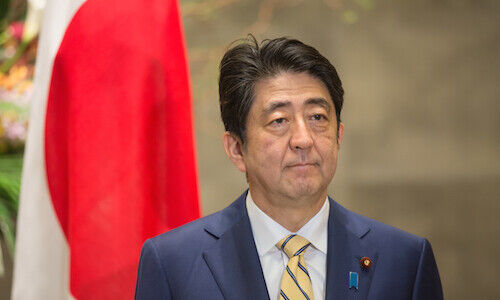The Architect of Abenomics Falls: What Say the Banks?
Japan’s Shinzo Abe was tragically gunned down in an apparent assassination, leaving behind a lasting legacy of boldness in economic policy. What say the banks?
Last Friday, Shinzo Abe, 67, was assassinated during a speech while campaigning for parliamentary elections over the weekend. Japan’s longest serving prime minister leaves behind a legacy with numerous achievements such as the successful efforts to bring the Olympics to Tokyo in 2020 or his leadership in the establishment of the Quad security alliance.
For financial institutions, his most lasting legacy may be the Abenomics policies based on «three arrows»: monetary easing from the Bank of Japan (BOJ), fiscal stimulus from government spending and structural reforms.
Following Abe’s tragic death, banks take stock of the effectiveness of Abenomics and the future of the policy strategy.
Growth Recovery Unsuccessful
Although banks lauded the boldness of Abenomics, the economic policy strategy failed to generate sustained growth. In the past decade, Japan never achieved more than 2 percent growth and even contracted 0.2 percent and 4.5 percent in 2019 and 2020, respectively.
«The rusty wheels of the economy began to move for the first time in a long while – but they never quite recovered full momentum,» said Shinichiro Kobayashi, senior economist at Mitsubishi UFJ Research & Consulting. «Abenomics revealed how deeply rooted Japan’s economic problems are and how hard it is to solve them.»
«While Abenomics fell short, ultimately, of its goal to deliver sustained reflation, it still prompted important changes,» said Fred Neumann, chief Asia economist at HSBC. «After years of deflation and stalled growth, Abenomics amounted to a bold attempt to shake the economy loose and put it back on the path of sustained growth.»
Abenomics to Stay For Now
Meanwhile, Japan will have to consider if it will maintain its course of loose monetary conditions and fiscal spending under the Fumio Kishida government whose ruling party won big in parliamentary elections on Sunday, boosted by a surge in support from sympathy for Abe’s unexpected death.
«With more fiscal spending expected, it would be hard to imagine the BOJ tightening policy by increasing borrowing costs,» said Takahiro Sekido, chief Japan strategist at MUFG Bank and a former BOJ official. «That would be very unsettling for markets.»
«There likely won't be a quick reversal of Abenomics or an exit from ultra-loose monetary policy,» added Koya Miyamae, senior economist at SMBC Nikko Securities. «In the long run, however, the Bank of Japan must consider some form of tweak to its monetary policy, given problems such as the weak yen. That will mean former or incumbent Bank of Japan executives will remain strong candidates as next central bank governor.»
Economics aside, Abe’s death will also cause ripples in the political landscape as he led a group of «reflationist-minded ruling party lawmakers favoring big spending» said UBS Sumi Trust Wealth Management's chief Japan economist Daiju Aoki, adding that his absence will have «a huge impact on the [Liberal Democratic Party’s] power balance».
























